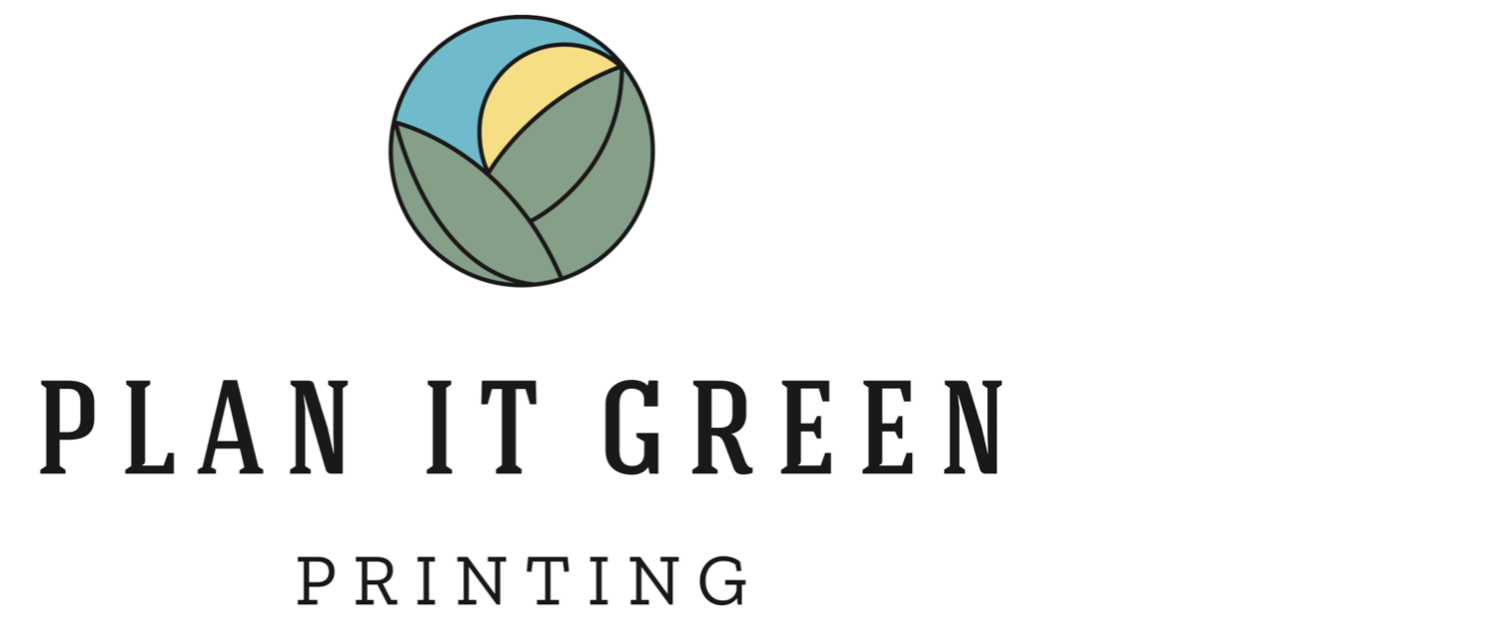
About Us
OUR VALUES
“We want our value to be bigger than our products. We believe in saving the planet and we strive to do whatever we can to get there. We stand in solidarity with you, conservationist, preservationist, ecologist, nature lover, eco activist, eco nut and freak, all tree huggers out there!”
— Rob Tossberg, CEO aka The Boss
= We are an Equal Opportunity Company =
OUR STORY
Rob Tossberg founded Plan it Green Printing in 2003. His daughter was born right after 9/11, followed by his son which strengthened his belief system in finding an answer to this question: How do I want to leave this planet for my children and future generations? Paper products and labeling products were not going to go away. But we can make them better. We can offer companies a more sustainable alternative.
“I am proud to be part of this industry, to be educating my customers and to keep offering more and more innovative, sustainable products.”
When the kids were off to college, Rob and Daniela moved back to Rob’s hometown in Western Montana during the pandemic in 2020. All jobs are printed in California and the Midwest.
Please send inquiries to: 150 N 4th Street #1611, Hamilton, Montana 59840

2005 CoejlSC GREEN SEAL RECIPIENT
Plan It Green Printing was the proud 2005 CoejlSC Green Seal Recipient for Businesses Leading the Way in Environmental Practices. Beginning in 2005, the Coalition on the Environment for Jewish People Living in Southern California began a tradition of awarding businesses leading in environmental business practices – businesses with a Higher Moral Standard for Businesses. Along with a Used Cardboard and Dry-Cleaning Company, we were the first to be awarded the Green Seal by City of Los Angeles Assembly Member Lloyd Levine and Faith2Green’s Lee Wallach.
FOR THE PLANET
PLAN IT GREEN PRINTING has promoted the use of alternative paper stocks since 2003. We are committed to the conservation of the world’s ancient and endangered forest ecosystems. As part of that commitment, we strongly support the North American commercial scale development of pulp, paper and packaging alternatives that are derived from agricultural residues like wheat straw as a way to diversify the fiber basket and meet our continued need for high quality, cost effective products.
We also support a National cohesive policy for handling industrial compost and recycling.
CARBON FOOTPRINT
We constantly seek to improve our product line. This is why we stopped selling Rock Paper, Stone Paper and Fiberstone in 2010 and other stocks imported from South America and Europe. We try to keep our carbon footprint to a minimum. Our clients come to us, because we sell eco-friendly products, stocks made in the US, made from and with renewable resources. Everyday, we try to convince new clients to give up plastic labels.
TRANPARENCY
We only work with vendors who provide proof of production. We want to know where and how the product is made and who worked on them and under what condition.
Smart organizations understand printing responsibilities which can enhance brand image in significant ways. Consumers prefer to buy green when given a choice. Today, the multitude of sustainable paper stocks, printing methods, and certification bodies require an education in and of itself. Offset vs. Digital. Inks vs. Toner. BPI Compostability vs. European Certification. Recycled vs. Compostable. Sustainability, Chain-of-custody and End-of-Life questions.
Because of Plan It Green Printing’s unique level of expertise with earth-friendly printing methods and materials, companies turn to us to assist them in navigating this new landscape.
ADVOCATE
We need a National Waste Management Policy
Why do we not have a nationwide recycling program? This way of thinking is short-sighted and unsustainable. It ignores the fact that everything we do has an impact on the world around us, and that the waste we create today will have consequences for generations to come. If we are to truly protect the natural beauty of our country and preserve it for future generations, we must learn to think differently about waste and the environment. We must embrace practices like composting and recycling, which help us to reduce our impact on the earth and create a more sustainable future for all.
Paper products and labels are not going to go away. Let’s create an honest, truly working, nationwide circular economy for them. Now, let’s look at reality. There is no nationwide system for handling Industrial Compost (cups, flatware, containers, our labels). There is no nationwide system for recycling. Our country needs a cohesive National Policy for handling compostable products and recyclable products. Leaving these decisions up to each state makes for rampant confusion, mis-representation and not nearly enough is getting done. If you want to learn more about the industry, check out this FRONTLINE Documentary.
What’s NEW:
View Wristbands
View Name Badges & Admission Stickers
View Books
View Brochures & Maps
About Plan It Green Printing and Who We Are
Plan It Green Printing is a pioneering eco-friendly printing company dedicated to providing sustainable alternatives to traditional printing materials. Since 2003, we've specialized in producing compostable stickers, and wristbands, 100% recycled paper labels, dissolvable name badges, and annual reports printed on recycled paper. Our mission is to help businesses, museums, universities, and food service providers reduce their environmental impact through high-quality, sustainable print solutions. By choosing Plan It Green Printing, you're partnering with a company committed to environmental responsibility and innovation in green printing.


